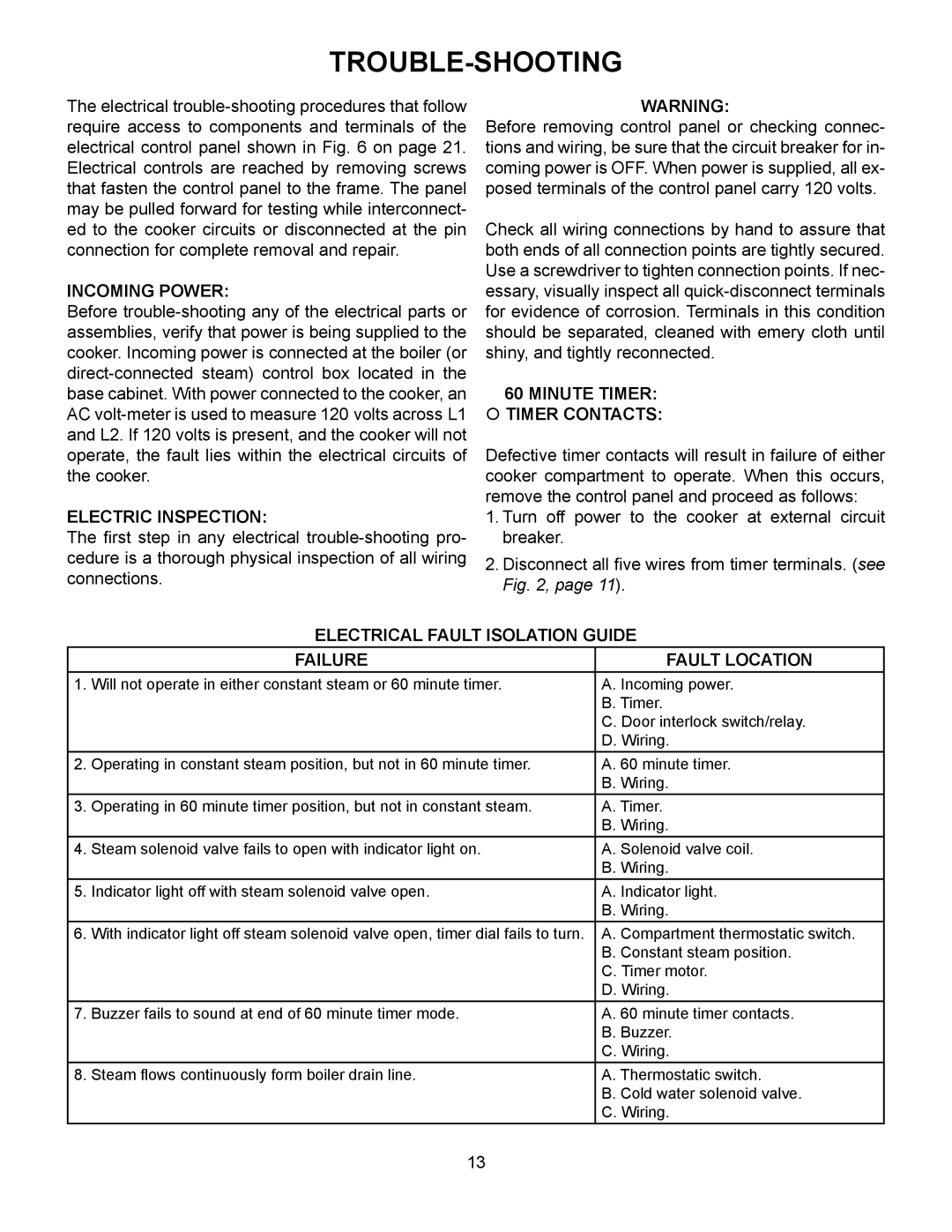TROUBLE-SHOOTING
The electrical
INCOMING POWER:
Before
ELECTRIC INSPECTION:
The first step in any electrical
WARNING:
Before removing control panel or checking connec- tions and wiring, be sure that the circuit breaker for in- coming power is OFF. When power is supplied, all ex- posed terminals of the control panel carry 120 volts.
Check all wiring connections by hand to assure that both ends of all connection points are tightly secured. Use a screwdriver to tighten connection points. If nec- essary, visually inspect all
60 MINUTE TIMER:
TIMER CONTACTS:
Defective timer contacts will result in failure of either cooker compartment to operate. When this occurs, remove the control panel and proceed as follows:
1.Turn off power to the cooker at external circuit breaker.
2.Disconnect all five wires from timer terminals. (see Fig. 2, page 11).
ELECTRICAL FAULT ISOLATION GUIDE
| FAILURE | FAULT LOCATION |
1. | Will not operate in either constant steam or 60 minute timer. | A. Incoming power. |
|
| B. Timer. |
|
| C. Door interlock switch/relay. |
|
| D. Wiring. |
2. | Operating in constant steam position, but not in 60 minute timer. | A. 60 minute timer. |
|
| B. Wiring. |
3. | Operating in 60 minute timer position, but not in constant steam. | A. Timer. |
|
| B. Wiring. |
4. | Steam solenoid valve fails to open with indicator light on. | A. Solenoid valve coil. |
|
| B. Wiring. |
5. | Indicator light off with steam solenoid valve open. | A. Indicator light. |
|
| B. Wiring. |
6. | With indicator light off steam solenoid valve open, timer dial fails to turn. | A. Compartment thermostatic switch. |
|
| B. Constant steam position. |
|
| C. Timer motor. |
|
| D. Wiring. |
7. | Buzzer fails to sound at end of 60 minute timer mode. | A. 60 minute timer contacts. |
|
| B. Buzzer. |
|
| C. Wiring. |
8. | Steam flows continuously form boiler drain line. | A. Thermostatic switch. |
|
| B. Cold water solenoid valve. |
|
| C. Wiring. |
13
